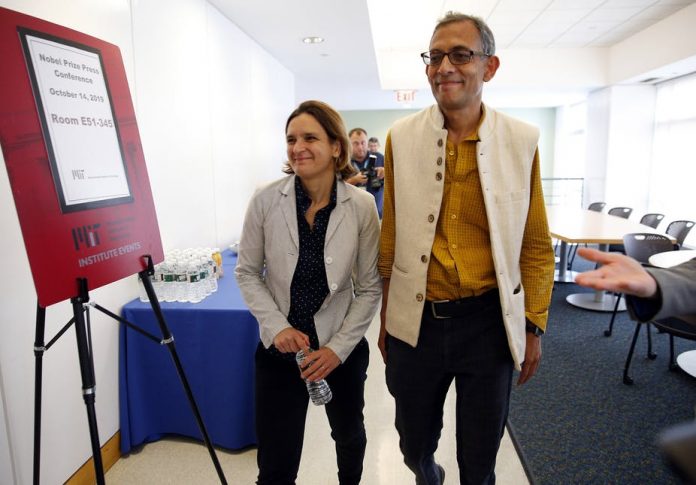The 2019 Nobel Prize in economics was awarded to three researchers for “their experimental approach to alleviating global poverty”, one which has “transformed development economics”.
What are randomised experiments? And why have they became so influential in development economics?
Improving the quality of life, particularly for the poor, is considered to be one of the main objectives of modern societies. Doing so requires a certain level of wealth. Economists have been preoccupied for centuries with understanding why some nations have “developed” economically and others have not.
But a more immediate question is: what can be done in the present? More specifically, what policies should less-developed countries adopt to improve the lives of their citizens?
Development economics as a subdiscipline was born in the 1940s and 1950s. For pioneers such as Paul Rosenstein-Rodan, W. Arthur Lewis and Albert Hirschman, development economics meant studying ways in which poor countries could attain large-scale societal transformation. They used a variety of analytical approaches, which pointed towards industrialisation as the driver of development.
Arthur Lewis, a native of Saint Lucia, was awarded the 1979 Nobel Prize in economics. This was in recognition of his study of the ways in which countries with unlimited supplies of labour – as is the case for many developing countries – could attain economic development.
One view of the challenge of development is that it is fundamentally about answering causal questions. If a country adopts a particular policy, will that cause an increase in economic growth, a reduction in poverty or some other improvement in the well-being of citizens?
In recent decades economists have been concerned about the reliability of previously used methods for identifying causal relationships. In addition to those methodological concerns, some have argued that “grand theories of development” are either incorrect or at least have failed to yield meaningful improvements in many developing countries.
Two notable examples are the idea that developing countries may be caught in a poverty trap that requires a “big push” to escape and the view that institutions are key for growth and development.



